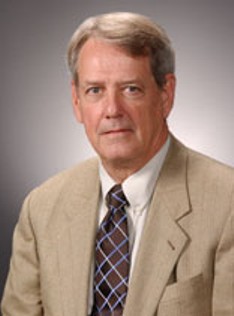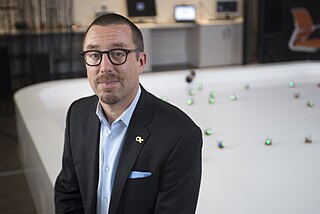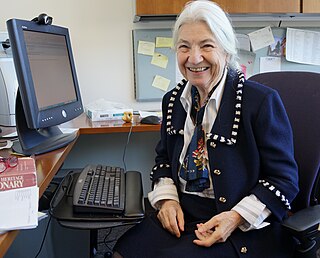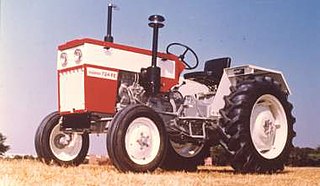
James Sacra Albus was an American engineer, Senior NIST Fellow and founder and former chief of the Intelligent Systems Division of the Manufacturing Engineering Laboratory at the National Institute of Standards and Technology (NIST).
A Bachelor of Engineering (BE or BEngg) or a Bachelor of Science in Engineering (BSc (Engg) or BSE) is an undergraduate academic degree awarded to a student after three to five years of studying engineering at an accredited college or university.

Southwest Research Institute (SwRI), headquartered in San Antonio, Texas, is an independent and nonprofit applied research and development (R&D) organization. Founded in 1947 by oil businessman Tom Slick, it provides contract research and development services to government and industrial clients.
The following outline is provided as an overview of and topical guide to automation:

Magnus B. Egerstedt is a Swedish-American roboticist who is the Dean of the Henry Samueli School of Engineering at the University of California, Irvine. He was formerly the Steve C. Chaddick School Chair and Professor at the School of Electrical and Computer Engineering, Georgia Institute of Technology.

Ruzena Bajcsy is an American engineer and computer scientist who specializes in robotics. She is professor of electrical engineering and computer science at the University of California, Berkeley, where she is also director emerita of CITRIS.
The NUST School of Mechanical and Manufacturing Engineering, commonly known by its acronym NUST-SMME, located in Islamabad, Pakistan, is a constituent school offering undergraduate and postgraduate programs in the fields of mechanical and manufacturing engineering. It was founded in 2008.

Hendrik (Rik) Van Brussel is a Belgian emeritus professor of mechanical engineering of the KU Leuven, world-renowned for his research on robotics, mechatronics and holonic manufacturing systems.
Masakatsu G. Fujie is a Japanese scientist who has played a major role in cutting-edge research in biomedical engineering. He has been responsible for many advances in the field of robotics.

Dr. Satyandra K. Gupta is a researcher and educator working in the field of automation and robotics. He started his career as a Research Scientist in the Robotics Institute at Carnegie Mellon University in 1995. He moved to the University of Maryland, College Park in 1998 as an Assistant Professor of Mechanical Engineering. He was appointed as the founding director of the Maryland Robotics Center in 2010. He was appointed as a Program Director for National Robotics Initiative at National Science Foundation and served in this role from 2012 to 2014. He was appointed as a member of the Task Force on Defense Science Board Summer Study on Autonomy in 2015 He joined the University of Southern California in 2016. He currently holds Smith International Professorship of Mechanical Engineering and serves as the founding Director of the Center for Advanced Manufacturing at Viterbi School of Engineering at the University of Southern California. He is known for his research in manufacturing automation, robotics, and computer-aided design. He was appointed as the Editor for Journal of Computing and Information Science in Engineering in 2017 by American Society of Mechanical Engineers (ASME) and the Editor-in-Chief for Advanced Manufacturing Book Series by World Scientific Publishing Company in 2016.

The Central Mechanical Engineering Research Institute is a public engineering research and development institution in Durgapur, West Bengal, India. It is a constituent laboratory of the Indian Council of Scientific and Industrial Research (CSIR). This institute is the only national level research institute in the field of mechanical engineering in India.
Mallasamudram Subramanyam Ramakumar was an Indian mechanical engineer, outstanding scientist and roboticist, known for developing robotic and automation technologies for Indian nuclear and defence purposes. He was the director of Nuclear Fuels, Automation and Manufacturing Group of the Bhabha Atomic Research Centre (BARC), Trombay. He was the first Head of Division of Remote Handling of Robotics (DRHR) at the organization. He pioneered robotic technology in India. Ramakumar was one of the key persons behind the Pokhran-II test, conducted by India in 1998. It was his team, which developed the online fuelling and coolant channel inspection systems for the power reactors for the 1998 tests.
Bradley James Nelson is an American roboticist and entrepreneur. He has been the Professor of Robotics and Intelligent Systems at ETH Zurich since 2002 and is known for his research in microrobotics, nanorobotics, and medical robotics.
Sunil K. Agrawal is an Indian roboticist and professor of Fu Foundation School of Engineering and Applied Science with secondary appointment in Rehabilitation and Regenerative Medicine at Columbia University. Agrawal is the author of more than 500 journals, three books, and has 15 U.S. patents.

Man Mohan Suri (1928–1981) was an Indian mechanical engineer and the Director of Central Mechanical Engineering Research Institute (CMERI), Durgapur. He is best known for inventing Suri Transmission, a hydromechanical transmission unit, reported to increase the efficiency of diesel locomotives and he held the patent for the inventions. The technology is known to have led to 36 patent specifications in eleven countries. He is also credited with the conceptualization of Swaraj farm tractor, a product of Punjab Tractors Ltd. and held another patent for his development of Railway truck wheel assembly. He received the fourth highest Indian civilian award of the Padma Shri in 1961. The Council of Scientific and Industrial Research, the apex agency of the Government of India for scientific research, awarded him the Shanti Swarup Bhatnagar Prize for Science and Technology, one of the highest Indian science awards for his contributions to Engineering Sciences in 1962. The Indian Institute of Technology, Delhi has instituted an annual award, Padmashri Manmohan Suri Project Award, for honoring the best mechanical project by its alumni.

Domenico Prattichizzo is an Italian scientist with a strong and international recognized expertise in the fields of Haptics, Robotics and, Wearable technology. His researches find their main applications in virtual and augmented reality scenarios and in the rehabilitation of people with upper and lower limbs, visual and cognitive impairments.

Yoram Koren is an Israeli-American academic. He is the James J. Duderstadt Distinguished University Professor Emeritus of Manufacturing and the Paul G. Goebel Professor Emeritus of Engineering at the University of Michigan, Ann Arbor. Since 2014 he is a distinguished visiting professor at the Technion – Israel Institute of Technology.

Jan Peters is a German computer scientist. He is Professor of Intelligent Autonomous Systems at Department of Computer Science of the Technische Universität Darmstadt.
Mengchu Zhou is a Chinese Distinguished Professor of electrical and computer engineering in the Helen and John C. Hartmann Dept. of Electrical and Computer Engineering at New Jersey Institute of Technology (NJIT) and at Macau University of Science and Technology. He is the Chairman of IKAS Industries of Shenzhen in China and a Board Member of OneSmart Education Group headquartered in China.

Tinku Acharya is an Indian computer scientist and a Fellow of IEEE.











